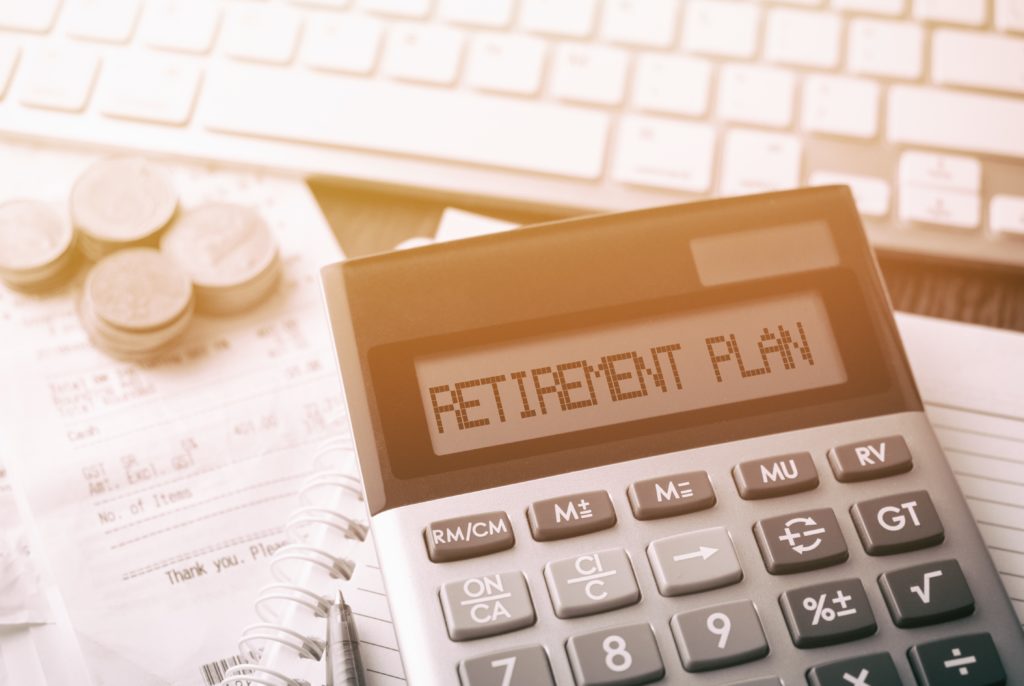
The coronavirus pandemic has impacted almost every aspect of our lives and chances are it’s going to impact your retirement plans as well, no matter if you’re in your 20s, your 40s, or your 60s. With the stock market in complete disarray and unemployment rates rising faster than ever, it’s difficult to stick to your financial plan and save money for retirement the way you used to do.
Considering the current situation, here’s what experts recommend we do to successfully save for retirement during the Coronavirus crisis.
Invest if you can
“While investing isn’t the right move for everyone during the coronavirus crisis, if you are fortunate enough to still have a paycheck, have funds set aside for an emergency, and don’t have debt, there are certainly opportunities to invest long-term,” says Winnie Sun, managing partner of Sun Group Wealth Partners.
If you are in a good financial situation, Sun advises you to make the most of investment opportunities and double or even triple your 401k contributions or retirement savings to account such as a Roth IRA. “You can always reduce those contributions if you need to when the market starts to recover,” she adds. Read also 3 Effects of the Coronavirus Pandemic on Your Social Security.
Take advantage of an automatic savings plan
“Some people with the means to save for retirement may know they need to do so, but they often have difficulty sacrificing present consumption because of a lack of self-control,” warns Echo Huang, CFA, CFP®, CPA, founder and president of Echo Wealth Management. “These people may find excuses not to do so, like ‘It’s hard to make money in the stock markets now,’ or ‘I’ll save and invest later when the situation gets better.'” Don’t become a victim of self-control bias and try to find “ways to save more that don’t rely on self-control.” For instance, introducing an automatic savings function in your 401(k) plan and boost your savings when you get a raise. See also 8 Easy Ways to Save More Money Monthly.

Make an IRA contribution that will reduce your 2019 tax bill
If you still haven’t made an IRA contribution to reduce your 2019 tax bill, consider yourself lucky. That’s because the IRS has changed the tax filing due date of April 15 to July 15, because of the COVID-19 crisis.
Here’s what happens in this situation, according to Emily Brandon, senior editor for retirement at U.S. News & World Report and author of Pensionless: The 10-Step Solution for a Stress-Free Retirement, breaks down how this helpful tax deduction works. “If you are in the 24 percent tax bracket and contribute $6,000 to an IRA for 2019, you can reduce your federal income tax bill by $1,440.”
“Take care to specify that [your IRA contribution] should be documented as a 2019 contribution [not 2020] if you want it to reduce your current tax bill,” she adds. Discover 14 Most Overlooked Tax Write-Offs You Don’t Want to Miss.
Avoid rash decisions
It’s normal for savers, especially those nearing retirement, to be worried about their investments during a market drop, says Fred Egler, financial planner and CFP® at Betterment for Business in New York City. However, “accepting risk is how you earn returns,” Egler says. “Historically, we’ve found that the more an investor changes their allocations, the worse their performance is,” he adds. “Unless you want to lock in losses, changing your plan isn’t generally a good idea.”
Nevertheless, “those closest to retirement shouldn’t take on more risk than necessary given their time horizon. The most common strategy is to dial down stocks and pick up more bonds.” Find out about how to Cut These 11 Unnecessary Expenses and Save Money During the Coronavirus Crisis.

Consider a high-interest savings account
If your financial situation prevents you or you feel uneasy about investing in the stock market in these unprecedented times, consider a high-interest savings account, says Jill Gonzalez, an analyst with WalletHub. “The APY (annual percentage yield) is typically somewhere around 1.5 percent, and though that might not seem like much, it’s a good way to start, and it adds up in time.” No matter what, stay away from these 10 Money Mistakes You’re Making, According to Financial Experts
It’s OK to take a break sometimes
If you’re in your 20s to early 40s, you need time to recover and bounce back from the effects of the coronavirus pandemic, says family finance expert Andrea Woroch. “Continue contributing as is, as long as you have healthy cash savings account for unexpected expenses and potential job loss,” says Woroch.
If you didn’t succeed in saving enough for your emergency fund, it’s ok to take a break from making your retirement contributions. “We don’t know the long-term impact of this coronavirus on our economy and your job isn’t guaranteed,” Woroch adds. “An emergency savings account is essential and should be your top priority right now.” If you can afford it, you can still make lower contributions to your retirement account as well, instead of stopping altogether.

Stop trying to “time the market”
Whether you’re driven by panic or simply want to take advantage of a good investment opportunity, timing the market might not be your best approach. “People are also trying to time the market when they delay contributions waiting for a ‘better time to invest,'” says Brian Walsh, CFP and manager of financial planning at SoFi in Claymont, Delaware. “Whether it is adjusting your allocation or delaying contributions, the data proves that timing the market is a bad idea for the average investor.” The best thing you can do right now is to continue making contributions, especially if you’re in your peak earning years. See also Want to Retire a Millionaire? Follow These Efficient Saving Steps.
Be wary about investing your stimulus check
Normally, saving money for retirement from your usual income source or other income streams is a good thing. However, given the current coronavirus crisis, this might no longer be as easy as before (if it ever was). “For many, the funds that they receive from the stimulus program should be kept in a totally accessible check/savings account so that it can serve as your financial lifeline for the immediate time,” she says. “Once you resume work, have income coming in again and can get back to your daily life, you can resume saving for your future.”























